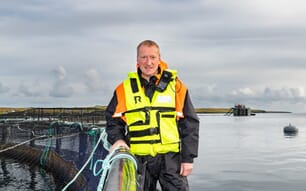“This is another significant step on the path towards much-needed reform,” says Mr Heatley.
“In the past the industry has been stifled by inflexible rules that discouraged investment in the sector and we’re working hard to enable growth in aquaculture within a framework of sustainable coastal management.
“We’re on track to put in place the regulations necessary to support the aquaculture industry to reach its goal of $1 billion in annual sales by 2025.”
This target is a three-fold increase on the current sales level.
“It’s all about enabling sustainable use of our valuable natural resources to build the economy, create more jobs and get more people into work, especially in the regions,” says Mr Heatley.
Cabinet’s latest proposals build on the range of measures announced in April this year.
Mr Heatley says the aim is to ensure minimal disruption to the existing industry, and allow the processing of outstanding aquaculture applications to be completed and new applications to be made.
Currently more than 60 applications relating to an area exceeding 8000 hectares are awaiting a decision.
“We want these applications to progress. This reform will effectively free up the bottleneck that has kept industry growth in limbo for many years.”
Cabinet also proposes making changes to the two regional coastal plans it considers present significant barriers to aquaculture growth – Tasman and Waikato - through an Aquaculture Reform Bill.
The proposed changes will enable applications for finfish farming in both regions as long as environmental standards are met. Also small extensions to existing farms in Waikato can be made from the start of the new regime.
Changes to coastal plans in other regions have been suggested, but rather than use legislation, the Aquaculture Unit within the Ministry of Fisheries will work with councils to improve sustainable aquaculture development opportunities within their regions.
“The Government recognises that while legislative change will provide the framework within which aquaculture can grow, it will primarily be decisions made at a regional level that determine the nature and pace of growth,” says Mr Heatley.
“It’s local people with an interest in their coastal area and local marine farmers that can best inform local rules.
“Hence, funding for the first five years of the new regime will be set aside to support regional councils with the implementation of these reforms. This is in addition to the money that has been reprioritised to fund the aquaculture business unit which will be made up of between six and eight aquaculture specialists.”
The Government expects to introduce the Aquaculture Reform Bill later this year with enactment in early 2011.
Government Outlines Aquaculture Reforms
NEW ZEALAND - The New Zealand Government has announced further steps in its plan to implement key changes to Aquaculture.
Fisheries and Aquaculture Minister, Hon Phil Heatley, says Cabinet has agreed to further recommendations that will boost the sector’s potential to generate sustainable economic growth.

